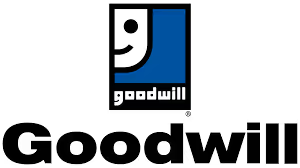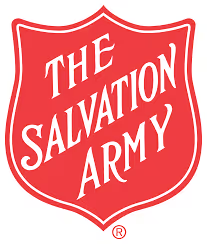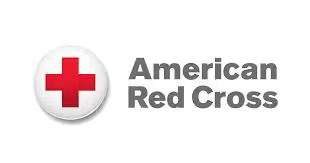






5-Star Valuation Services, Loved by Hundreds
Frequently Asked
Questions
No Frequently Asked Questions Found.
The appraisal process involves a comprehensive evaluation of various types of property, including real estate, artwork, collectibles, and specialized equipment. A qualified, independent appraiser conducts a meticulous examination that captures the item's precise market value, considering factors such as condition, age, and current market trends.
The core purpose of this appraisal is to create a transparent, credible record that meets stringent IRS guidelines. Donors must obtain a detailed report that includes a comprehensive property description, precise valuation methodology, and the specific date of valuation. The appraiser's professional certification and signature validate the document's integrity and accuracy.
Precision is paramount in this process. Inaccurate or incomplete appraisals can trigger potential audits, penalties, or outright denial of tax deductions. By adhering to IRS requirements, donors can confidently document their charitable contributions while maintaining full compliance with tax regulations.
Ultimately, an IRS Form 8283 appraisal serves as a critical bridge between charitable giving and tax reporting, providing a rigorous, objective assessment that protects both the donor's interests and the integrity of the tax system.
The evaluation goes beyond a simple price estimate, diving deep into the nuanced characteristics that contribute to an appliance's overall value. Certified appraisers conduct a thorough inspection that considers critical elements such as the appliance's physical condition, age, brand reputation, and current market trends. They carefully assess the equipment's operational status, looking for signs of wear, potential maintenance issues, and overall functionality.
Key considerations during the appraisal process include examining the appliance's manufacturing details, original purchase price, current market replacement costs, and potential depreciation. Appraisers use specialized knowledge to provide an objective and comprehensive valuation that reflects the true market worth of kitchen equipment. This meticulous approach ensures that homeowners, insurance companies, and other stakeholders receive an accurate and reliable assessment of their kitchen appliances' value.
The evaluation serves multiple practical purposes, offering insights that extend beyond simple monetary assessment. Whether needed for insurance documentation, estate planning, divorce settlements, or potential property sales, a professional kitchen appliance appraisal provides critical information that helps individuals make informed decisions about their valuable household assets.
The online appraisal process typically involves submitting comprehensive documentation about the appliance. Clients are required to provide high-resolution photographs and detailed information, including the brand, model number, manufacturing year, current condition, and any distinctive features that might impact the item's market value.
Professional appraisers leverage advanced digital tools to analyze submitted materials. They can assess appliances through meticulously reviewed digital evidence, examining wear and tear, functional capacity, and current market trends. Advanced video conferencing technologies like Zoom or Skype enable real-time consultations, allowing appraisers to conduct virtual inspections with remarkable precision.
These digital valuation methods maintain rigorous professional standards, ensuring that the assessment meets industry compliance requirements. The approach provides clients with a flexible, efficient alternative to traditional in-person appraisals, accommodating diverse scheduling needs and geographical constraints.
By embracing technological innovations, online kitchen appliance appraisals deliver accurate, reliable valuations that match the convenience and speed of contemporary consumer expectations. The process combines professional expertise with digital efficiency, offering a modern solution for understanding an appliance's true market worth.
Commercial appraisers concentrate on industrial-grade kitchen equipment used in restaurants, cafes, and catering businesses. Their assessments prioritize performance capabilities, durability, and compliance with health and operational standards for high-volume cooking and food preparation environments.
Antique and vintage appraisers represent a distinctive niche, specializing in collectible kitchen appliances with historical significance. These experts meticulously evaluate rare models based on production year, brand heritage, condition, and collector market demand. Their deep knowledge allows them to accurately determine the value of unique and potentially valuable vintage kitchen equipment.
Insurance appraisers play a critical role in determining appliance value for coverage purposes. They analyze market trends, potential replacement costs, and specific risks associated with different kitchen appliances to help establish appropriate insurance protection levels.
Certified appraisers distinguish themselves through professional credentials and rigorous training. These professionals adhere to strict industry standards and methodologies, providing enhanced credibility and precision in their valuation processes across various kitchen appliance assessment scenarios.
Insurance preparedness stands as a primary motivation for obtaining an appliance appraisal. In the event of unexpected damage or theft, a detailed appraisal ensures accurate compensation by providing insurers with precise documentation of an item's current market value. This proactive approach can streamline claims processes and prevent potential undervaluation.
For homeowners considering resale or charitable donation, an appraisal becomes an invaluable tool. When selling high-end appliances, a professional assessment helps establish a fair market price, protecting sellers from potential underpricing. For those pursuing charitable donations, a certified appraisal provides critical documentation necessary for substantiating tax deduction claims, particularly for donations exceeding specific IRS thresholds.
Legal proceedings such as divorce settlements or inheritance distributions also benefit significantly from professional appliance appraisals. These objective valuations provide a neutral, fact-based assessment that can help resolve potential disputes about asset distribution, ensuring equitable treatment for all parties involved.
Renovation planning represents another crucial context where appliance appraisals prove instrumental. Homeowners can leverage these assessments to understand the current value of existing equipment, make informed replacement decisions, and develop more accurate budgeting strategies for kitchen upgrades.
Ultimately, a kitchen appliance appraisal represents a strategic investment in financial clarity and protection. By providing comprehensive, professional documentation of an appliance's value, homeowners gain critical insights that support informed decision-making across insurance, tax, legal, and renovation contexts.
What Makes IRS Form 8283 Critical for Charitable Donations?
Understanding the Critical Role of IRS Form 8283 in Charitable Donations
IRS Form 8283 is a crucial document for taxpayers making significant non-cash charitable contributions, especially when donating valuable items like kitchen appliances. This form serves several critical purposes:
- Reporting non-cash charitable contributions exceeding $500
- Ensuring tax regulation compliance
- Maximizing potential tax benefits
Fair Market Value Determination
When donating kitchen appliances, accurately determining the fair market value (FMV) is paramount. The IRS requires a meticulous approach to valuation that considers:
- Appliance age
- Current condition
- Relevant market factors
Valuation Considerations
Different appliances will have varying valuations. For example:
- A recent high-end refrigerator may retain significant value
- Outdated or malfunctioning appliances typically depreciate quickly
- Supporting documentation like photographs and original receipts can substantiate your valuation
Appraisal Requirements
The form becomes especially critical when donation values approach significant thresholds. Key points include:
- Donations exceeding $5,000 require a qualified appraiser's signature
- Professional appraisers provide an additional layer of verification
- Credible documentation helps prevent potential audit complications
Why Proper Documentation Matters
Comprehensive and accurate reporting through IRS Form 8283 offers multiple benefits:
- Demonstrates responsible charitable giving
- Protects taxpayers during potential IRS reviews
- Ensures compliance with tax regulations
- Maximizes potential tax deduction opportunities
By understanding and carefully completing IRS Form 8283, donors can confidently support charitable causes while maintaining proper tax documentation.
Kitchen Appliances: What Qualifies for Charitable Contribution Appraisals?
Qualifying Kitchen Appliances for Charitable Contribution Deductions
When considering a charitable donation of kitchen appliances, understanding IRS guidelines is crucial for maximizing potential tax benefits. The IRS requires a professional appraisal for appliances with a fair market value exceeding $500 when filing Form 8283.
Types of Qualifying Kitchen Appliances
- Standard Appliances: Conventional kitchen items including:
- Refrigerators
- Stoves
- Ovens
- Microwaves
- Dishwashers
- High-End or Specialty Appliances:
- Wine coolers
- Espresso machines
- Built-in appliances
Key Considerations for Appraisal Eligibility
- Condition Assessment:
- Fully functional appliances
- Minimal cosmetic damage
- Well-maintained equipment
- Preferably less than 10 years old
- Documentation Requirements:
- Original purchase receipts
- Detailed photographs
- Maintenance records
- Comprehensive service history
Importance of Professional Appraisal
A qualified appraiser provides critical services by:
- Conducting an unbiased assessment
- Evaluating current market trends
- Analyzing comparable sales data
- Ensuring compliance with IRS regulations
Proper documentation and professional evaluation are essential to substantiate the fair market value of donated kitchen appliances and maximize potential tax benefits while maintaining full compliance with IRS guidelines.
Navigating the Professional Appraisal Process for Kitchen Equipment
Navigating the professional appraisal process for kitchen equipment requires careful attention to detail and understanding of several key steps. Whether you're donating appliances to a charitable organization or managing an estate, a professional appraisal ensures accurate valuation for IRS Form 8283 purposes.
Key Steps in Kitchen Appliance Appraisal
- Initial Documentation Gathering
- Collect all relevant paperwork, including:
- Original purchase receipts
- Previous appraisal documents
- Manufacturer warranties
- Maintenance records
- Collect all relevant paperwork, including:
- Identifying Appraisal Scope
- Determine specific kitchen appliances requiring valuation:
- Refrigerators
- Ovens and ranges
- Dishwashers
- Specialty kitchen equipment
- Determine specific kitchen appliances requiring valuation:
- Selecting a Qualified Appraiser
- Key criteria for professional selection:
- Specialized kitchen equipment expertise
- Recognized professional certifications
- Extensive market knowledge
- Unbiased valuation approach
- Key criteria for professional selection:
Comprehensive Valuation Process
Professional appraisers conduct a thorough evaluation by examining multiple critical factors:
- Overall appliance condition
- Equipment age and remaining useful life
- Brand reputation and market demand
- Functionality and recent upgrades
- Comparative market analysis
Appraisal Report Essentials
The final appraisal report serves as a critical document for IRS Form 8283, providing:
- Detailed valuation methodology
- Comprehensive item description
- Fair market value determination
- Supporting comparative data
Important Compliance Considerations
Accurate reporting is paramount. Misrepresenting donated item values can result in potential tax penalties and legal complications. Working with a certified professional ensures compliance and provides peace of mind throughout the appraisal process.
How to Select a Qualified Appraiser for Your Kitchen Appliances
Selecting a Qualified Appraiser for Your Kitchen Appliances
Choosing the right professional for kitchen appliance appraisal requires careful consideration. Here are the critical factors to ensure you work with a competent and reliable expert:
1. Professional Credentials
- Verify credentials from recognized professional organizations
- Look for designations from:
- American Society of Appraisers (ASA)
- International Society of Appraisers (ISA)
- Indicates commitment to:
- Ethical standards
- Continuous professional development
2. Specialized Expertise
- Seek appraisers with specific knowledge of kitchen appliances
- Confirm experience with various appliance types, including:
- Refrigerators
- Ovens
- High-end culinary equipment
- Specialized knowledge ensures accurate and nuanced valuations
3. Regulatory Compliance
- Ensure deep understanding of IRS regulations
- Verify familiarity with Form 8283 requirements
- Confirm ability to prepare documentation meeting tax reporting standards
4. Comprehensive Reporting
- Expect detailed valuation reports that include:
- High-quality photographs
- Detailed item descriptions
- Comparable sales data
- Adherence to Uniform Standards of Professional Appraisal Practice (USPAP)
- Transparent documentation supporting valuation
5. Professional Reputation
- Research potential appraisers through:
- Online reviews
- Professional testimonials
- Personal referrals
- Strong industry reputation indicates reliable service
6. Communication Effectiveness
- Assess the appraiser's communication skills
- Look for professionals who:
- Explain valuation methodology clearly
- Answer questions thoroughly
- Provide regular updates
- Clear communication builds trust and understanding
By methodically evaluating these key aspects, you can confidently select a qualified appraiser who will provide accurate and compliant documentation for your kitchen appliance valuation needs.
Key Valuation Factors That Impact Kitchen Appliance Worth
When appraising kitchen appliances for IRS Form 8283 purposes, several critical factors significantly influence their overall value. Understanding these key valuation elements allows for a more accurate assessment of appliance worth.
Primary Valuation Factors for Kitchen Appliances
- Appliance Condition
- Physical state is the most crucial determinant of value
- Excellent condition appliances command higher prices
- Key assessment criteria include:
- Absence of rust and scratches
- Full functionality
- Overall structural integrity
- Repairs or damage can significantly reduce market value
- Brand and Technological Sophistication
- High-end brands typically retain greater value
- Advanced technological features increase appraisal worth
- Innovative design and cutting-edge capabilities matter
- Age and Technological Relevance
- Newer models with contemporary features are more valuable
- Technological advancement impacts appliance depreciation
- Potential obsolescence reduces overall market value
- Current Market Dynamics
- Consumer trends directly influence appliance valuation
- Energy-efficient models often command premium pricing
- Regional market demands can significantly impact worth
- Additional Value Considerations
- Built-in installation options
- Accompanying accessories
- Comprehensive original documentation
Comprehensive Appraisal Strategy
Successful kitchen appliance appraisal requires a holistic approach that carefully evaluates multiple interconnected factors. Thorough documentation and objective assessment ensure accurate representation of an appliance's true market value for IRS Form 8283 reporting.
Common Kitchen Appliances: Understanding Their Potential Donation Value
When considering the donation of kitchen appliances, understanding their potential value is crucial for IRS Form 8283 purposes. Kitchen appliances can vary significantly in value based on multiple key factors.
Key Valuation Factors for Kitchen Appliances
- Age of the appliance
- Overall condition
- Brand reputation
- Energy efficiency
- Unique features
Detailed Appliance Value Insights
Refrigerators
Refrigerators represent one of the most valuable kitchen appliances for donation purposes. Factors influencing their appraisal value include:
- Size and capacity
- Energy rating
- Advanced technological features
- Brand quality
- Current market demand
Ovens and Ranges
The type and quality of ovens significantly impact their donation value. Consider these elements:
- Gas vs. electric configuration
- Manufacturer reputation
- Cooking technology features
- Overall functional condition
Dishwashers
Dishwasher valuation depends on several critical aspects:
- Maintenance history
- Eco-friendly capabilities
- Operational functionality
- Cleanliness and appearance
Microwaves and Small Appliances
While typically lower in individual value, small kitchen appliances can still contribute meaningfully to donation assessments:
- Brand quality
- Unique technological features
- Power and performance characteristics
- Potential for bundled valuation
Professional Appraisal Recommendations
To maximize potential tax deduction benefits, consider consulting a qualified appraiser who can provide comprehensive insights into current market trends and specific appliance valuations. An expert can help you accurately document the true value of your kitchen appliance donations.
Essential Documentation for a Compliant Kitchen Appliance Appraisal
Ensuring Comprehensive Documentation for Kitchen Appliance Appraisals
When preparing a kitchen appliance appraisal for IRS Form 8283, meticulous documentation is critical to establish credibility and compliance. The following key elements are essential for a thorough and acceptable appraisal:
Critical Documentation Components
- Precise Appliance Description
- Complete brand and model information
- Exact age of the appliance
- Detailed condition assessment
- Unique identifiers (serial numbers)
- Visual Documentation
- High-resolution photographs from multiple angles
- Clear images capturing unique features
- Comprehensive visual evidence of condition
- Market Value Substantiation
- Comprehensive market comparables
- Analysis of local and online market trends
- Current pricing data for similar items
- Professional Appraiser Credentials
- Detailed professional qualifications
- Relevant certifications
- Professional memberships
- Demonstrated expertise in appliance valuation
- Comprehensive Written Report
- Detailed valuation methodology
- Clear explanation of value determination
- Transparent assessment process
- Donation Documentation
- Official donation receipt
- Written acknowledgment from receiving charity
- Verification of donation transfer
Best Practices for Documentation
Thorough documentation serves multiple critical purposes: it provides transparency, establishes credibility, and ensures compliance with IRS regulations. By meticulously preparing each aspect of the appraisal, donors can confidently support charitable causes while maintaining proper tax documentation.
Remember that precision and comprehensiveness are key when preparing documentation for IRS Form 8283. Each element should be carefully considered and professionally presented to facilitate a smooth charitable contribution process.
How Depreciation Affects Your Kitchen Appliance's Charitable Value
When considering the charitable value of kitchen appliances for IRS Form 8283, understanding depreciation is crucial for accurately determining the potential tax deduction.
Understanding Depreciation Mechanics
Kitchen appliances experience value reduction through several key mechanisms:
- Age-Related Depreciation: The natural decline in value as an appliance gets older
- Wear and Tear: Physical condition impacts overall market value
- Technological Obsolescence: Newer models can rapidly decrease an older appliance's worth
Common Depreciation Calculation Methods
- Straight-Line Depreciation: Evenly reduces value over the appliance's expected useful life
- Declining Balance Depreciation: Accelerates value reduction in early years of ownership
Factors Influencing Appliance Value Reduction
Multiple elements determine an appliance's depreciation rate:
- Original purchase price
- Manufacturer and model quality
- Maintenance history
- Current market conditions
- Technological advancements
Charitable Contribution Considerations
When donating kitchen appliances, keep these critical points in mind:
- Tax deductions are based on the current fair market value
- Depreciation directly impacts the potential tax benefit
- Professional appraisals provide the most accurate valuation
- Detailed documentation is essential for IRS compliance
Valuation Example
A $2,000 refrigerator might depreciate to approximately $800 after five years, depending on condition and market factors. This significant reduction underscores the importance of understanding depreciation when planning charitable donations.
Accurate assessment of an appliance's current value ensures you maximize potential tax benefits while maintaining full transparency with tax authorities.
Preparing Your Kitchen Appliances for a Professional Assessment
When preparing kitchen appliances for a professional assessment, particularly for IRS Form 8283 purposes, strategic preparation can significantly impact the accuracy and reliability of your valuation. A methodical approach ensures you maximize the potential value of your appliances.
Essential Preparation Steps
- Documentation Collection
- Gather original purchase receipts
- Collect warranty information
- Compile manufacturer manuals
- Maintain records of upgrades and repairs
- Comprehensive Cleaning and Inspection
- Thoroughly clean each appliance
- Carefully inspect for visible damage
- Document any significant wear or mechanical issues
- Note the functional status of each item
- Strategic Organization
- Arrange appliances for easy access
- Unplug electrical items
- Group similar appliances together
- Create a clear, accessible workspace
- Comprehensive Visual Documentation
- Take high-resolution photographs
- Capture multiple angles
- Ensure brand and model details are visible
- Create a digital record of appliance condition
- Market Value Research
- Investigate current local market prices
- Compare similar make and model appliances
- Understand potential valuation ranges
- Prepare comparative information for appraiser
Key Considerations
Professional appraisers appreciate thorough preparation. By presenting well-documented, clean, and accessible appliances, you enable a more precise and potentially favorable assessment. Remember that transparency about an item's condition and history can significantly impact its appraised value.
Pro Tip
While minor cosmetic wear is expected, significant mechanical issues or structural damage can substantially reduce an appliance's value. Being upfront about an item's condition helps establish trust and ensures a more accurate valuation process.
Decoding Kitchen Appliance Appraisal: Your Top Questions Answered
Understanding kitchen appliance appraisal can be complex, especially when preparing documentation for IRS Form 8283. This comprehensive guide will help you navigate the intricacies of kitchen appliance valuation.
Key Components of Kitchen Appliance Appraisal
A kitchen appliance appraisal provides a professional assessment of your items' fair market value, which is crucial for various financial and legal purposes.
What Exactly Is a Kitchen Appliance Appraisal?
A kitchen appliance appraisal is a detailed evaluation that determines the current market value of kitchen equipment, including:
- Refrigerators
- Ovens and ranges
- Dishwashers
- Microwaves
- Other major kitchen appliances
Valuation Methodology
Professional appraisers consider multiple factors when determining an appliance's value:
- Age of the appliance
- Brand and manufacturer
- Current condition
- Functionality
- Market demand
- Technological features
Documentation Requirements
To streamline the appraisal process, prepare the following documentation:
- Original purchase receipts
- Warranty information
- Maintenance records
- Previous appraisal documents (if available)
Why Professional Appraisal Matters for IRS Form 8283
For non-cash charitable contributions exceeding $500, the IRS requires a comprehensive valuation to ensure accurate reporting. A professional appraisal helps you:
- Comply with tax regulations
- Substantiate the value of donated items
- Avoid potential penalties
- Provide clear documentation for tax purposes
When to Seek an Appraisal
Consider obtaining a professional appraisal in the following scenarios:
- Preparing for a significant charitable donation
- Estate planning and asset transfer
- Insurance documentation
- Divorce or property division proceedings
By understanding the appraisal process, you can make informed decisions and ensure accurate valuation of your kitchen appliances.
Maximizing Tax Benefits Through Professional Appliance Appraisals
When filing taxes, understanding the true value of your kitchen appliances can lead to significant financial benefits. Properly appraising your appliances enhances your ability to substantiate deductions on IRS Form 8283, particularly when donating to charitable organizations or claiming depreciation for business use.
Key Factors in Kitchen Appliance Valuation
A professional kitchen appliance appraisal provides an accurate, unbiased estimate of value based on several critical factors:
- Condition: The wear and tear on an appliance dramatically affects its market value. Well-maintained items typically receive higher appraisals compared to those showing signs of excessive use or damage.
- Age and Model: An appliance's age and specific model significantly impact its worth. Vintage or sought-after models may appreciate more than newer, mass-produced units.
- Market Demand: Current market trends and consumer preferences play a crucial role in establishing value. Certified appraisers stay current on market dynamics that influence appliance valuations.
- Original Cost and Depreciation: Understanding the initial purchase price and accounting for depreciation is essential in establishing accurate value. Professional appraisals incorporate comprehensive depreciation schedules that reflect an appliance's diminishing value over time.
Benefits of Professional Appraisal
Obtaining a professional appraisal offers multiple advantages:
- Ensures valuation accuracy
- Legitimizes claims for the IRS
- Demonstrates fair market value for tax deductions
- Maximizes potential tax refunds
Engaging a qualified appraiser for your kitchen appliances is an essential step in optimizing your tax benefits. With a precise appraisal, you can confidently file Form 8283 and enjoy peace of mind knowing you're strategically managing your assets.
View all Locations
APPRAISEITNOW APPRAISERS ARE BEST-IN-CLASS & CREDENTIALED BY LEADING APPRAISAL ORGANIZATIONS LIKE THE ISA, ASA, & MORE.






.svg)










